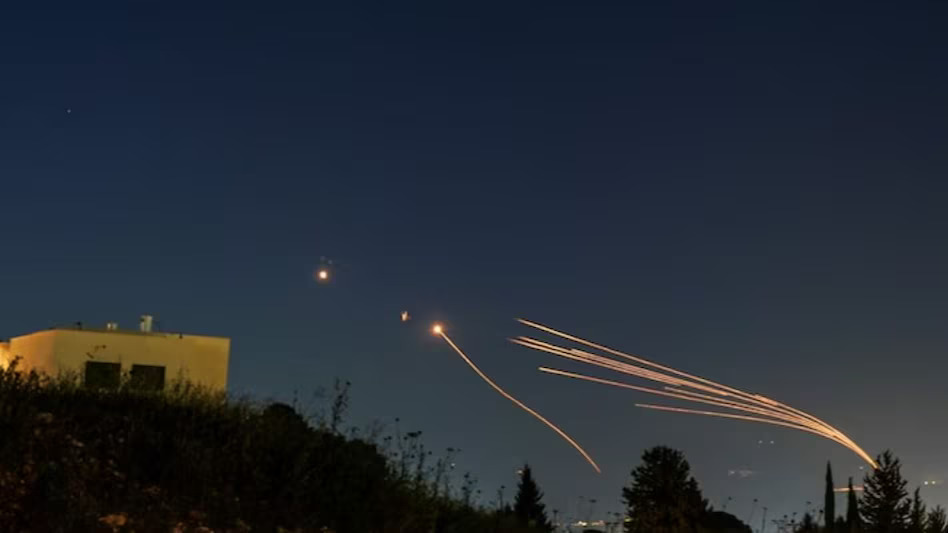Iran launches an air attack on Israel, know the game plan of Ibrahim Raisi
Iran shocked the whole world by launching a fierce air attack on Israel. Israel did not suffer any major damage in this attack, but it cannot be denied that this has the full possibility of a war breaking out. Now Iran is warning Israel about a retaliatory attack.
Tehran: Iran attacked Israel on Saturday with about 350 drones and missiles. The result of the Iranian attack is that it has now set the standard for retaliation. It has also drawn a line between air strikes in Damascus and its willingness to retaliate. This is a new kind of equation in the tension between Israel and Iran. This means that Iran often calculates its activities in the region and its response to various events. If a war breaks out between Israel and Iran due to this attack, then Tehran will benefit the most. It can gain the sympathy of the Muslim world by portraying itself as Israel’s biggest enemy in the entire Arab countries.
Attacking is part of Iranian strategy
An Israeli expert gave an example of Tehran’s ploy behind this attack, saying, that in the past, Iran has hijacked or attacked cargo ships to escalate tensions or extract concessions from various Western powers. Iran is very calculative in this process. It has also operated proxy groups in the region to carry out attacks. In Iraq, it has used a variety of pressure groups to attack the Kurdistan region and target US forces over the past five years. Iran has also directly attacked the Kurdistan region of Iraq and attacked Pakistan and Syria in January, claiming to target terrorists.
Iran is expanding its attack capability
Given the current situation in the Middle East, Iran is expanding the reach of its attacks and its willingness to attack directly from Iran. Iran is now openly coming out to carry out these attacks and take credit for them. Similarly, in 2019, when Iran attacked Saudi Arabia’s Abqaiq facility through drones and missiles, Iran-backed Houthi rebels in Yemen initially took responsibility for it. The Houthi rebels took responsibility for the attack so that Saudi Arabia would not launch any retaliatory attack against Iran. However, it eventually became clear that the attack was carried out by Iran.
Iran calms itself down by attacking in retaliation
Today, Iran has moved beyond the Abqaiq attack or the attack on US forces at the Assad base in 2020. Iran attacked the Assad base in retaliation for the killing of IRGC Quds Force chief Qassem Soleimani. Iran has now again demonstrated its power by launching hundreds of missiles and drones on Israel. However, the Iranian attack was not intended to cause massive damage to Israeli civilians in any way, because it knew that if civilian casualties occurred, no one could stop the war between the two countries. If a war happens, Iran will have to bear heavy losses, as Israel is far ahead in terms of weapons and global support.
A new precedent set in the Middle East?
This sets a new standard, and it seems that Iran will now be prepared to launch large-scale attacks in the future. It also means that if Iran attacks Israel with a few drones and missiles in the future, it will be seen as a small attack. Iran will also try to exempt itself from retaliation by calling such attacks small. Some Iran experts have called the April 13-14 attack “symbolic”, when in reality the attack was not symbolic but massive and unprecedented.
Iran is making strategy with Hezbollah
Israel has choices about how to respond. It is more important to look at how Iran seeks to re-align the “equation” in the region. For example, Iran has also tried to encourage Hezbollah in Lebanon to re-align itself with Israel. Hezbollah has carried out 3,100 attacks on Israel and has even expanded those attacks in several cases, forcing the evacuation of some 80,000 people from northern Israel.
